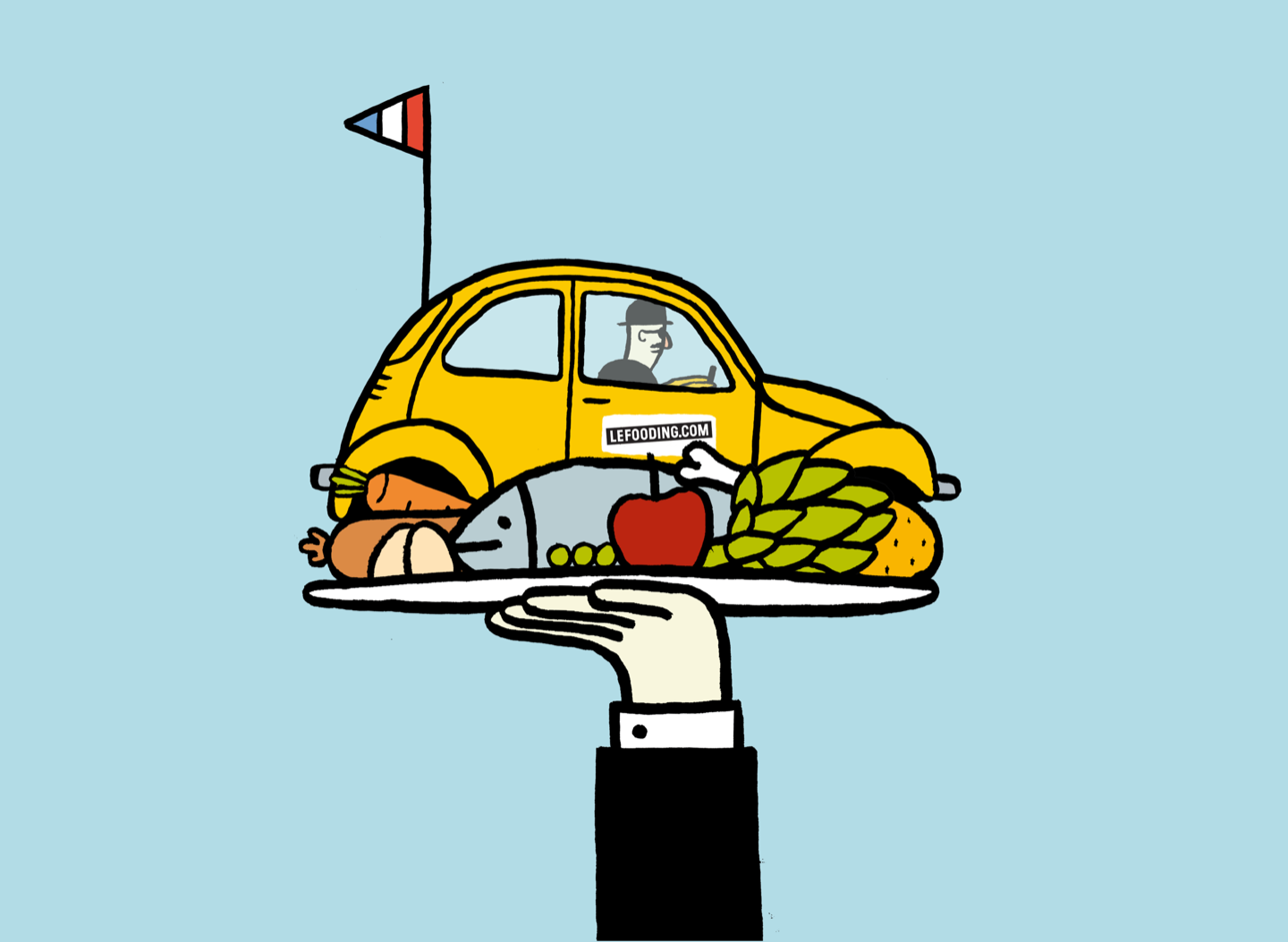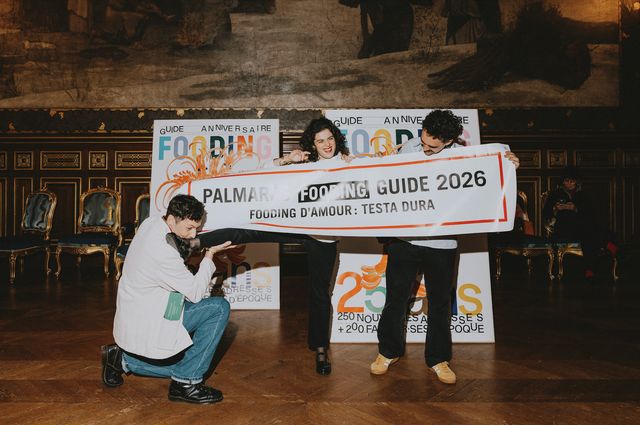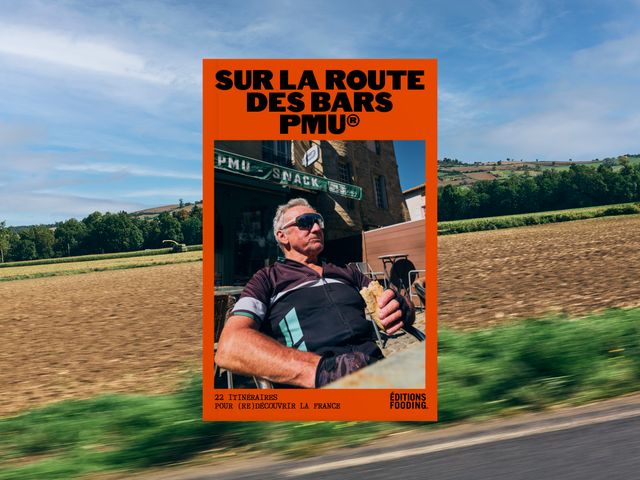Cher Frenchbasher,
Passant le plus clair de mon temps à bricoler dans la « food industry », j’avoue ne réserver que peu de temps aux lectures gastronomiques. Par exemple, quand j’ai un peu de temps devant moi, je préfère me régaler les oreilles à Coachella, plutôt que de pointer dans un de ces festivals culinaires internationaux s’efforçant de faire croire aux gras-du-bide du monde entier que leur mal serait une vertu, leurs chefs préférés de suprêmes artistes et leurs assiettes des sex toys. D’ailleurs, si j’ai créé le Fooding, c’est justement parce qu’ayant fréquenté de près ce petit monde pendant des années en tant que critique gastronomique, j’ai compris très vite que je ne pourrais pas supporter plus longtemps l’internationale des « food geeks », leurs discussions obsessionnelles, leur monopole du bon goût…
Bref, comme tout cela ne m’intéresse pas, c’est donc bien avec deux semaines de retard que j’ai découvert ton torchon « Y-a-t-il quelqu’un pour sauver la cuisine française ? » et non, parce qu’en bon Français, je serais paresseux, mou, déconnecté, à la ramasse…
L’autre soir donc, alors que je dînais avec Laeticia et Johnny dans un restaurant de Los Angeles (Laeticia qui, même à L.A., cuisine encore les pâtes à la poutargue française, je te jure !), Laeticia me fait lire ton article…
Et là, je t’avoue que, même si tu as pris soin de citer Le Guide Fooding et de vaseliner de prévenances ta plume avant de la faire cracher, j’aurais trop aimé être au 16ème siècle, afin de pouvoir choper la truite dans mon assiette pour te baffer avec et te donner rendez-vous dans un jardin de Bel Air ou à Central Park, pour un duel au couteau à viande folle.
Mais qui es-tu Michael Steinberger pour écrire des choses pareilles ?! Soit tu penses ce que tu dis et, dans ce cas, tu n’es vraiment qu’un minable soignant ta honte de toi-même en tirant sur des ambulances. Soit tu ne penses pas ce que tu dis, et alors, tu n’es qu’un piètre truqueur ! (Pour te rassurer, je pense exactement la même chose des éditorialistes français qui se gausseraient du déclin de l’empire américain ; le monde est bien divisé en mondes, on est d’accord là-dessus, mais moins en nations qu’en systèmes de pensée… Et, toi, cher Michael, tu entres directement dans ce système binaire qui compte aussi, cela va te surprendre, quelques Français – Enjoy !- mais pas que…)
Ce qu’il faut que tu saches maintenant, c’est que le Guide Fooding a été le premier média à dire tout le bien qu’il pensait de cette vague de chefs étrangers venus ouvrir des restaurants et diriger des cuisines en France. Je peux même t’avouer qu’en 2009, il n’était pas facile de convaincre les grands médias français, et leurs journalistes gastronomiques respectifs, de nous suivre pour dire à quel point cet élan était formidable. Tous ces super restaurants dont tu parles, à l’exception peut-être de Verjus, ont donc été révélés au monde, soutenus, plébiscités par lefooding.com et il faut continuer de se réjouir de tout ça !
Est-ce que cela signifierait pour autant que la cuisine française serait morte, en phase terminale ? Non bien sûr ! Car qu’est-ce que la cuisine française au 21ème siècle sinon une cuisine « made in France ». Oserais-tu prétendre, toi l’Américain, qu’en 2014, la race d’une cuisine est définie par le passeport du chef qui la fait ? Si t’avais écrit ton article dans les années 80, t’aurais peut-être eu raison, mais aujourd’hui Michael, enfin, quoi ! Les buns de David Chang sont-ils coréens ou new yorkais ? Yotam Ottolenghi est-il israélien, italien, allemand ou londonien ? Daniel Rose est-il illinois, américain ou parisien?
Sais-tu seulement, puisque tu sembles attacher de l’importance aux papiers identitaires et aux races, que la tendance « bistronomie » dont les plus grandes villes du monde profitent depuis quelques années, New York en tête (Estela, Contra…) a été initiée par un chef qui ne parle que le français ? « Papieren bitte ! » « Yves Camdeborde, le Comptoir du Relais, Mein herr ! » Que cette nouvelle cuisine de bistrot a ensuite été réinitialisée, modernisée, par un autre chef né en France. « Jawohl ! Iñaki Aizpitarte, Le Chateaubriand, Herr Steinberger ! ». D’ailleurs si t’avais fait sérieusement ton boulot d’intervieweur, tous ces chefs étrangers t’auraient dit que sans Iñaki, sans Yves, ils ne se seraient jamais lancés dans une pareille aventure. Iñaki et Yves ont été, parmi une poignée d’éclaireurs de nationalité française, les premiers chefs à faire la démonstration économique que ce modèle de néobistrot dépouillé de tout superflu pouvait rencontrer le succès, alors qu’il n’existait nulle part ailleurs dans le monde… Et dans la série, que fais-tu des Bertrand Grébaut (Septime, Clamato), David Toutain (du restaurant éponyme), Adeline Grattard (Yamtcha), Sven Chartier (Saturne), considérés, y compris par ceux dont tu parles, comme de véritables cadors ?… Et je ne parle que de Paris, puisque pour parler de la cuisine française, tu ne parles que de Paris !
En plus cher Michael, là où tu fais fausse route, c’est en citant Gregory Marchand, le talentueux chef de Frenchie, dont tu garantis les papiers 100% français, mais qui aurait plus appris à Londres ou à NY qu’en France… N’as-tu donc pas compris que Gregory Marchand s’inscrivait au contraire dans la grande tradition de l’impérialisme culinaire français ? Qu’il était venu chez toi, pour piquer vos idées et les digérer à la française ! Zut ! Tu n’y avais donc pas pensé ? Tu blanchis subitement !… Serait-ce sa cuisine qui remonte ? Son hot dog, qui irait si bien avec un coup de bordeaux, ne passerait plus ? Hmmm, je préfère m’éloigner, t’as des renvois… Et passer à table avec des Américains moins paresseux.
Alexandre Cammas
[Version française & English version below]
French food bashing: we’re not swallowing!
Dear Frenchbasher,
Spending most of my days tinkering around in the “food industry,” I admit that I reserve very little of my time for gastronomic articles. For example, when I have a little free time to myself, I’d rather feast my ears at Coachella than check out one of these international food festivals while trying to convince the potbellies of the world that their ills are virtues, their favorite chefs are great artists and their dishes are sex toys. If I created Le Fooding, it was precisely because after having closely observed this little world during my many years as a gastronomic critic, I quickly understood that I couldn’t put up with the international community of “food geeks” for very long, their obsessive discussions, their monopoly on good taste…
In short, since that universe doesn’t interest me, it was a solid two weeks late that I discovered your scathing article, “Can Anyone Save French Food?” and not because, as a proper Frenchman, I happen to be lazy, lethargic, disconnected, behind the times…
The other night, while dining with Laeticia and Johnny in a Los Angeles restaurant (Laeticia, who, even in L.A., still cooks pasta à la poutargue française, I swear!), Laeticia had me read your article….
And here, I must confess, even if you were careful to mention Le Fooding Guide and to lubricate your pen with kindness before spitting fire, I would have really liked to be in the 16th century, in order to grab the trout off of my plate and give you a few slaps before fixing a rendezvous in the gardens of Bel Air or Central Park, for a steak knife dual.
But who are you, Michael Steinberger, to write such things?! Either you believe what you write, and in that case, you must enjoy kicking us while we’re down, or you don’t believe what you write, and you’re nothing more than a small-time ideologue. (To reassure you, I think exactly the same thing of French editorialists who mock the decline of the American empire; the world is divided, we can agree upon that, but less by nation and more by systems of thought…And you, dear Michael, you seem to enter directly into this binary system that also counts amongst its ranks, this will surprise you, a few of the French—enjoy!—but not only them….)
What you need to know now is that Le Fooding Guide was the first publication to praise this wave of foreign chefs who came to open restaurants and run kitchens in France. I can even swear to you that in 2009 it wasn’t an easy task to convince the big French media powerhouses (Le Monde, Le Figaro…and their respective gastronomic writers) to pay attention to the changes taking place and how truly formidable they were. All of these excellent restaurants that you have written about, with the exception perhaps of Verjus, were revealed to the world, supported and praised by lefooding.com. No one will tell you otherwise. And we should continue to rejoice for that!
And does that mean that French cuisine is dying, in the terminal stages of life? No, of course not! Because what is French cuisine in the 21st century if not cuisine that’s “made in France?” Do you dare claim, you, the American, that in 2014, the race of a cuisine is defined by the passport of the chef who prepared it? If you had written your article in the 1980s, you might have been right, but today Michael, you can’t be serious! Are David Chang’s buns Korean or New Yorker? Is Yotam Ottolenghi Israeli, Italian, German or a Londoner? Daniel Rose, is he Illinoisan or Parisian?
Did you know, since you seem to attach so much importance to government issued IDs and races, that the “bistronomy” movement which has been developing in the world’s biggest cities for years—New York comes to mind (Estela, Contra…)—was set into motion by a chef who only speaks French? “Papieren bitte!” ” “Yves, Camdeborde, Le Comptoir du Relais, Mein herr!” That this new bistro cuisine was reinitialized, modernized by another chef born in France? “Jawohl! Inaki Aizpitarte, Le Chateaubriand, Herr Steinberger!” And if you had really done your job as an interviewer, all of these foreign chefs would have told you that without Inaki, without Yves, they would never have been able to embark on such adventures. Inaki and Yves were, amongst a handful of scouts of French nationality, the first chefs to demonstrate economically that this form of neo-bistro, stripped of all the excess, could be successful, even though it existed nowhere else in the world… And within this series of chefs, what do you have to say about Bertrand Grébaut (Septime, Clamato), David Toutain (from his eponymous restaurant), Adeline Grattard (Yamtcha), Sven Chartier (Saturne), who are considered, amongst those of whom you speak, to be true heavyweights? Of course, I’m only talking about Paris, since when you speak of French cuisine, you only mention Paris!
And what’s more, dear Michael, where you’ve made a misstep is in citing Gregory Marchand, the talented chef of Frenchie, whose nationality you guarantee as 100% French, but who learned more in London or in NY than in France… Did you not realize, au contraire, that Gregory Marchand was working within the grand tradition of French culinary imperialism? That he came to your country to steal your ideas and then digest them à la française! Zut! You hadn’t thought of that? You’re suddenly looking very pale…Could it be that your food is coming back up? Your hot dog that paired so well with the glass of Bordeaux suddenly doesn’t feel so hot? Hmm, I’d rather distance myself; you’re looking queasy…And dine with Americans who aren’t quite as lazy.
Alexandre Cammas
Illustration de Joachim Larralde, extraite du Guide Fooding 2013




